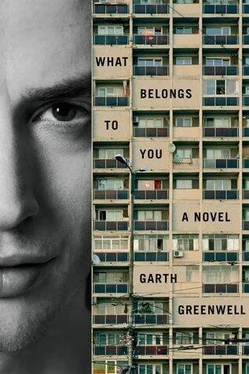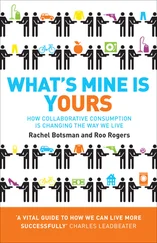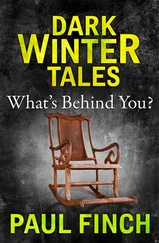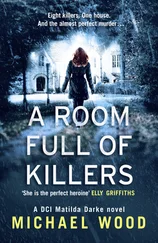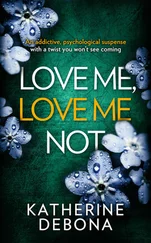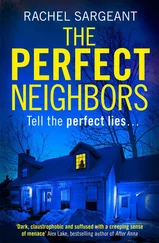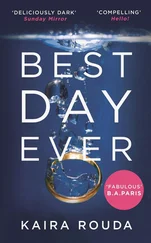Garth Greenwell - What Belongs to You
Здесь есть возможность читать онлайн «Garth Greenwell - What Belongs to You» весь текст электронной книги совершенно бесплатно (целиком полную версию без сокращений). В некоторых случаях можно слушать аудио, скачать через торрент в формате fb2 и присутствует краткое содержание. Год выпуска: 2016, ISBN: 2016, Издательство: Farrar, Straus and Giroux, Жанр: Современная проза, на английском языке. Описание произведения, (предисловие) а так же отзывы посетителей доступны на портале библиотеки ЛибКат.
- Название:What Belongs to You
- Автор:
- Издательство:Farrar, Straus and Giroux
- Жанр:
- Год:2016
- ISBN:9780374713188
- Рейтинг книги:4 / 5. Голосов: 1
-
Избранное:Добавить в избранное
- Отзывы:
-
Ваша оценка:
- 80
- 1
- 2
- 3
- 4
- 5
What Belongs to You: краткое содержание, описание и аннотация
Предлагаем к чтению аннотацию, описание, краткое содержание или предисловие (зависит от того, что написал сам автор книги «What Belongs to You»). Если вы не нашли необходимую информацию о книге — напишите в комментариях, мы постараемся отыскать её.
What Belongs to You
What Belongs to You — читать онлайн бесплатно полную книгу (весь текст) целиком
Ниже представлен текст книги, разбитый по страницам. Система сохранения места последней прочитанной страницы, позволяет с удобством читать онлайн бесплатно книгу «What Belongs to You», без необходимости каждый раз заново искать на чём Вы остановились. Поставьте закладку, и сможете в любой момент перейти на страницу, на которой закончили чтение.
Интервал:
Закладка:
On Sunday night Mitko appeared again. He buzzed up from the street this time, confident I would answer; or maybe he had gotten tired of waiting for someone to open the door. It was late, I was already in bed with a book in my hand. It had been a long, anxious weekend, and I had hardly needed to exaggerate when I wrote to my department chair that I was too ill to come in, freeing the next day for the clinic. I was caught up again in the poetry of the illness, as it were, that aura or miasma of shame; I felt unclean, I wanted to hide myself away, feeling, for all I had learned of the disease, that even touching someone might contaminate them. I washed my hands compulsively, and made obsessive use of the little bottles of antiseptic gel that most teachers keep close by. I stayed at home as much as I could, and when I had to go out I shied away from any kind of contact, careful not to bump or nudge into people on the street or in the grocery store, which is difficult to avoid here, where there’s such a different idea of personal space. I had been sick before, of course, but this felt like more than sickness, like a physical confirmation of shame.
I told R. everything on Friday night. I called him on Skype as soon as I saw him online; I had been waiting for a while, he had been out with friends and got home later than planned. He was still in his street clothes when his image filled my screen, his hair mussed from the hat he had just pulled off. He was already in the middle of a sentence when his voice came through, apologizing for being so late, and it took him a moment to notice that something was wrong. What is it, he said, what happened? I couldn’t bring myself to speak for a minute and then I spoke like a child, I said I have to tell you something, I’m sorry, please don’t get mad. What is it, he said again, a little frightened now, just tell me. And I did, watching his face as I told him about Mitko’s visit and the clinic and what they had said. I didn’t know how he would respond; I thought he would be angry, I was even afraid he might end everything between us. But he only took a somewhat deeper breath and said All right, I’ll get tested, it’s not a big deal, right, the worst case is a shot. Calm down, he said, and I was flooded with gratitude and relief. I was surprised he took it so calmly, more calmly than I had; I was usually the more dependable one, older and more settled, and after we logged off Skype I wondered if his calm would last, or whether he was just shocked at what I had told him, experiencing a kind of blankness before worry set in. And I was right, the next morning I woke to find my in-box full of e-mails he had sent through the night, each more anxious than the last. He had just graduated university and was still without a job, entirely dependent on his parents; he would have to ask them for money, he wrote, which would mean telling them the whole story. He had only recently told them about me, in the process coming out to them; how could he tell them he might have syphilis, he asked me, what would they think. He was frantic by the last e-mail he sent, and I felt horrible for what I had done. We spoke again when he woke, and I told him that I would wire him money, of course I would pay for everything, I said, after all it was all my fault. Though I braced myself for his anxiety to turn to resentment and then to blame, it never did. By Sunday night he had regained his resolve: we would go to our respective clinics in the morning, we agreed, we would be treated, it would all be over soon.
I had put the computer away and settled into bed to read when the buzzer rang. I knew who it was, of course, but I still stepped out onto the balcony to look. Mitko stood below, bareheaded against the cold, peering up to catch sight of me. He smiled when he saw me, and I held my hand out to him in a staying motion, as if patting something down, before going back in to quickly put on the clothes I had left crumpled on the floor. We had agreed, R. and I, that when Mitko returned I shouldn’t let him into my apartment, that we should speak outside or go somewhere else; I don’t like the idea of him there, R. said, and really he thought I should cut him off entirely. Why would you see him again, he had asked me several times over the last days, you don’t owe him anything, you’ve already helped him, and if you keep helping him there will be no end to it, he’ll take and keep on taking. You know he doesn’t care about you, R. said in one of our conversations, you were never friends or anything else. I did know this, and so I found it difficult to explain the obligation I felt, the sense that I couldn’t, whatever else might happen, simply cut Mitko adrift, though I had tried to do that before, and maybe I would have to do it again. You want to be the big American, R. said in a final charge, you think you can fix things, you want to save him. And maybe that was part of it; certainly there was a tenderness in me that Mitko struck as no one else did, and I hated that, for all his sometimes brutality, he was finally so helpless in a world that took little heed of him. I did want to help him, but I no longer believed, if I ever had, that Mitko could be drawn in any permanent way out of what had become his life. I knew I couldn’t save him, but how could I explain to R., especially to him, the feeling of inevitability I had whenever Mitko appeared, as though we were in a story that had already been written.
He was waiting patiently when I stepped outside into the cold, standing beside the door and drawing on a cigarette that he left in his mouth as he held his hand out in greeting. K’vo ima , he asked, glancing up at the dark apartment, what’s wrong? A friend is staying with me, I said, the lie R. had told me to use, and Mitko nodded, Yasno , I get it. Your friend from Portugal, he said, the obvious assumption, though I was taken aback to hear any mention from him of R., and I quickly shook my head, as if dismissing the thought of him from the air. No, I said, just a friend, and then, before he could ask anything else, Are you hungry, should we go somewhere to eat? We began walking slowly together over the ice, which was thick and many-layered on the sidewalk. Mitko was wearing the same clothes I had last seen him in, the same thin jacket, but he seemed unbothered by the cold, and in general he looked better: he had showered and shaved, his clothes were clean, and looking down, I saw that the canvas sneakers had been replaced by short leather boots, well-worn but sturdy. A friend gave them, Mitko said when I asked, shrugging his shoulders, they’re not so nice but they do the job, they’re better than the others. We turned to the right just past my building, down a side street that was less traveled and so especially treacherous now, and despite my boots I slipped several times, once nearly falling. Careful, Mitko said, grabbing me and holding me steady, surer-footed than I, and once I had regained my balance he squeezed me hard around the shoulders, leaving his arm there as we continued picking our way to the main boulevard. There was a McDonald’s on this street open twenty-four hours; it was always well lit and there were always people there, as R. had reminded me; it would be a good place if I had to meet with Mitko, he said, a safe place.
I expected Mitko to load his tray with far more than he could eat, as he usually did when I bought him food, but he only ordered a sandwich, fries, and at my insistence a milkshake, which he had never had before, he said, it had never occurred to him to try one. Mitko grabbed the milkshake as soon as the server set it down and put the straw to his lips, and it was a joy to see his eyes widen with pleasure when he tasted it. We walked with his tray to the most secluded corner, as far as we could get from the other diners, a few couples, one large group of friends. To the right of our table there was a closed glass door leading to a room for children’s parties. The room was dark now, and the door was locked, as Mitko found when he tried to turn the knob; but we could make out bits of the brightly colored interior, the plastic cubes for climbing, plush seats in the shapes of cartoon characters. It disquieted me somehow; it was a whole world molded for a kind of carelessness I doubted had anything to do with childhood, a carelessness I couldn’t remember ever feeling. Mitko sat and tore into his food, not pausing until almost all of it was gone. Then he looked up, almost embarrassed, as if for a moment he had forgotten I was there. Kak si , he said, smiling a little, and I said I was fine, a little tired maybe, but all right. It’s late, he said apologetically, I know you go to sleep early, I wouldn’t have rung the bell except I saw your light. This was untrue, of course, as we both knew, and maybe I spoke a little brusquely when I said Why did you come to see me, do you need something, but he brushed this aside, asking me instead if I had been to the clinic yet, if I had been tested. Yes, I said, I have to go again for a second test tomorrow, but the first was positive, I know I have it. Mitko looked at me silently, and then Oh, he said, I’m sorry, and it sounded genuine, more so as he said it again, suzhalyavam , I’m sorry. But I dismissed this, waving my hand a little in the air. I have it from you, I said, probably my friend has it from me, and you got it from someone, too; it’s an infection, I said, there’s no guilt, you don’t need to be sorry. Mitko looked surprised at this, that I had passed up an advantage, but he nodded in acknowledgment nonetheless. And you, I said, are you better, have the pills helped, but he jerked his head, the single vertical motion that means no here, like a door slamming shut. No, they haven’t helped, and gesturing to his crotch, I still have the same problem, he said, using the word he had used before, as if for a leaking faucet. I went to the clinic again, he said, I have to get the injections, the pills aren’t strong enough. It’s dangerous for me, he went on, the medicine is very strong, and I already have problems with my liver, I told you that. I nodded, remembering what he had said about his weeks in the hospital in Varna, which he had spoken of with more horror than of prison. So it’s dangerous, he went on, but I have to do it, to get rid of this other thing. Suzhalyavam , I said, repeating his word, I’m sorry. And it’s expensive, he went on, looking up at me to make the most of my sympathy, the shots cost much more than the pills, one hundred leva, he said, and then quickly added, but that’s for all three shots, after that I’m done. He hadn’t asked me for anything, but of course the request was there, it seemed cruel to make him say it. Dobre , I said, okay, so I’ll help you, you don’t need to worry. Some tension I hadn’t quite registered in him released as he smiled, and I realized that he had been worried, unsure whether my feeling for him would stretch so far. Thank you, he said, and then, you are a true friend, istinski priyatel , and I was disconcerted by the pleasure I took in his saying it.
Читать дальшеИнтервал:
Закладка:
Похожие книги на «What Belongs to You»
Представляем Вашему вниманию похожие книги на «What Belongs to You» списком для выбора. Мы отобрали схожую по названию и смыслу литературу в надежде предоставить читателям больше вариантов отыскать новые, интересные, ещё непрочитанные произведения.
Обсуждение, отзывы о книге «What Belongs to You» и просто собственные мнения читателей. Оставьте ваши комментарии, напишите, что Вы думаете о произведении, его смысле или главных героях. Укажите что конкретно понравилось, а что нет, и почему Вы так считаете.
